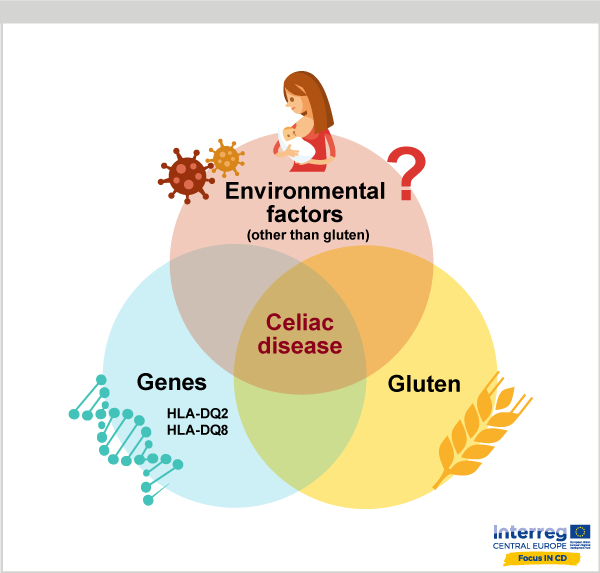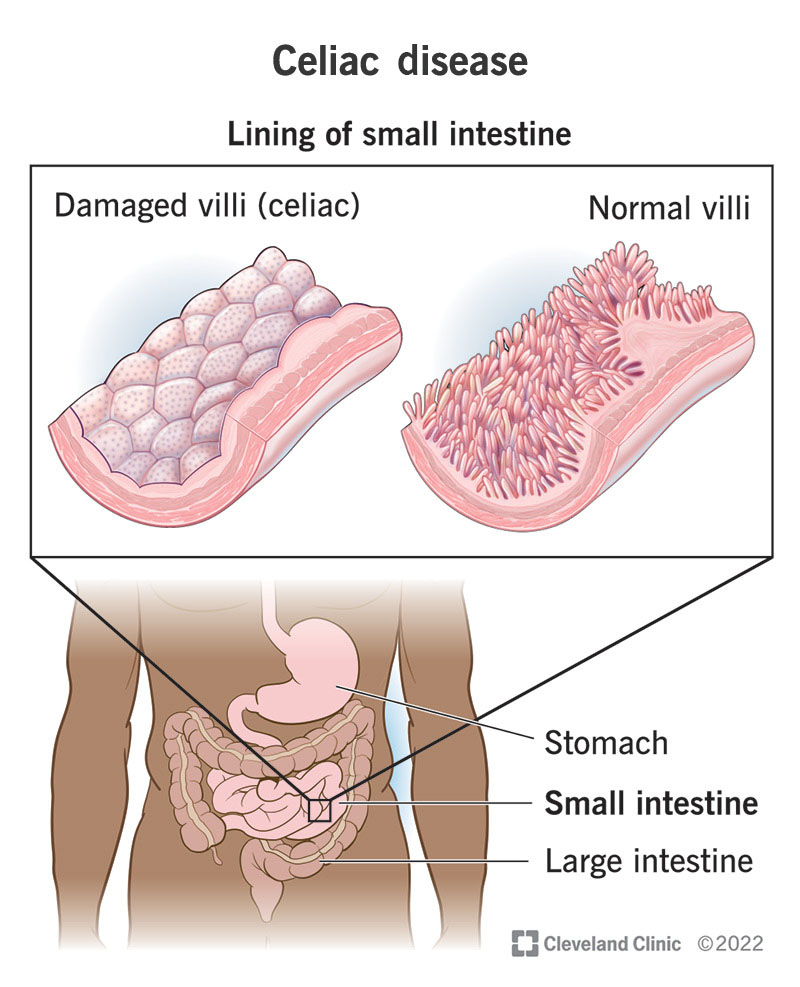- Published on
What Is Celiac?
- Authors
- Name
- Jake Konigsberg
- Role
- Founder
Celiac disease is an autoimmune disease where the consumption of gluten essentially results in the body's immune system attacking itself. More specifically, the immune system targets the small intestine, which is crucial in further digesting food after it leaves the stomach. Gluten is a protein found in wheat, barley, or rye, meaning that one can not eat any products that contain those plants.
The continued attack of gluten on the small intestine eventually leads to its breakdown, preventing the absorption of important nutrients. This damage causes complications like anemia, diarrhea, and weight loss.
There are three types of celiac disease:
- Classical celiac disease-- Generally begins in childhood. The early development in childhood of celiac disease can lead to stunted growth and development in children. This form of the disease can lead to the development of steatorrhea, where one produces pale, fat, and potent stool. They also experience the common symptoms of malabsorption in the small intestine (i.e. digestion issues and diarrhea)
- Non-classical celiac disease-- Unlike classical celiac disease, those with non-classical celiac disease do not experience the common symptoms of malabsorption. Common symptoms of those with this form of the disease include abdominal bloating and cramping.
- Silent celiac disease-- This name derives from the fact that patients with this form of the disease do not experience symptoms common to celiac disease. Although they do not experience the symptoms of celiac disease, those with silent celiac disease still encounter the same damage to the small intestine when they consume gluten.
The exact cause of celiac disease is unknown. However, various risk factors have been identified. It is known that those with a family history of celiac disease have a higher risk of developing the disease. Additionally, eating foods with gluten, infant-feeding practices, and gut bacteria can also contribute to the development of celiac disease. Additional risk factors include Type 1 Diabetes and Down syndrome.

